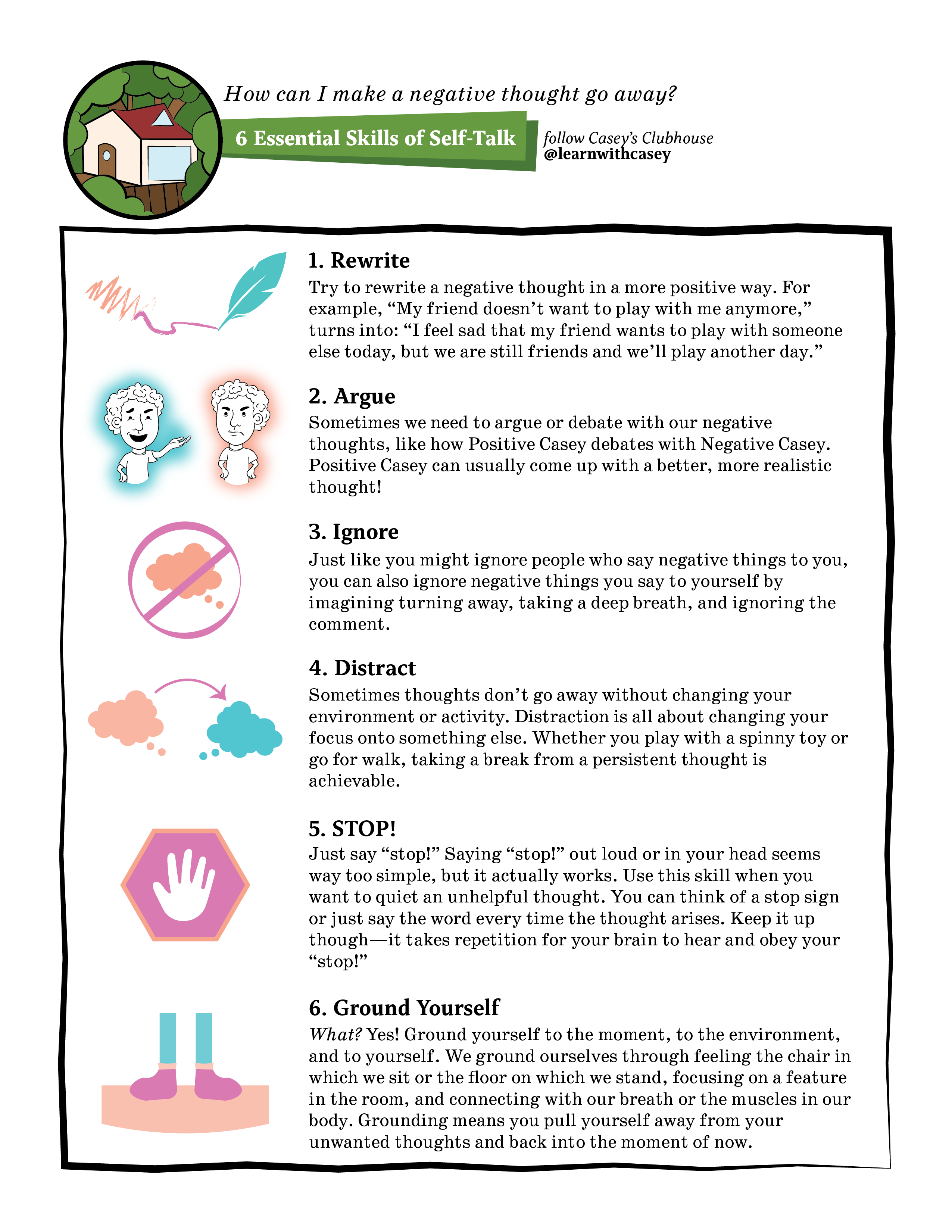
Thoughts affect every moment of every day. They affect the success and failure of our skills. Take social skills for example. There are so many factors at play when we consider social skills. They are complex skills that have deep roots in personality, abilities, energy, emotions, thoughts, and behaviors.
Social skills aren’t a simple list of behaviors such as eye contact, squaring up, approaching, and smiling. No, social skills are a complex set of inside and outside skills that allow you to do what is socially appropriate or advantageous. Imagine for a moment all the skills that it takes to make conversation, join in a game, apologize, ignore annoying behavior, be flexible, stay calm, self-regulate, be a good sport, respect others, or let others go first. Each one is complex.
Conversation skills, for example, use both verbal and nonverbal skills. One needs to know how to approach others, which takes confidence. One needs to know how to ask questions and respond to another person’s questions. One needs to be able to show interest by keeping one’s chin up, smiling, and squaring up to the other person. One needs to be aware of the evenness and back and forth of conversation. Underlying many of these skills, healthy self-talk is necessary, almost like an inside coach encouraging you to do the specifics of the skill.
Using our thoughts to regulate, balance, inspire, and find perspective isn’t a new concept. You can find writings about it all the way back to the beginning of the written word. In the past 130 years since Sigmund Freud established the field of psychology, psychiatrists and psychologists were aware of our cognition but weren’t necessarily aware of the impact on our daily lives, let alone on our long-term perspectives. Today, we understand from studies that when we change our minds, we change our lives.
Psychiatrist Aaron T. Beck was the father of cognitive therapy. Beck created assessments and inventories that helped diagnose and treat depression and anxiety. He led the way for Dr. David Burns, author of the 1989 ground-breaking book The Feeling Good Handbook, to develop the concept of Cognitive Distortions. In the handbook, which is still relevant today, Burns identifies several cognitive distortions and finds strategies that restructure these thoughts into more realistic and productive thoughts. Cognitive psychology has become the most effective treatment for mood disorders but the skills have a broader appeal.
Experts now agree that healthy self-talk is one of the most direct and powerful skills in creating a happy life. We’ve all heard sayings like what you believe, you can achieve, or, what you think about you bring about. There is truth to both of those statements. Most of us, however, weren’t introduced to these skills as children.
Maybe our parents weren’t aware, it wasn’t necessarily a thing, or it was considered too complex for us. Imagine for a moment if you’d been taught these skills. Would it have impacted the way you think? Would you have been able to use the skills to balance out difficult times in your life? Or could you have used the skills to encourage what was difficult for you to do?
We want to give Casey’s kids the advantage of these skills early in life. We teach them the basics of these skills to help them achieve social success and so much more. Casey’s parents can use these skills too. As we said, social skills are complex. Parenting skills are also complex. As adults, we are more aware of our thinking than we were as children. You already have the basic knowledge necessary to understand cognitive skills. We hope to help you deepen that knowledge.
All of us fall prey to Distorted Thinking. As parents, we are especially vulnerable because we are concerned and responsible for more than just ourselves. We worry: will our kids find friends? We rant: how could a child be allowed to bully my child? We cry: why does my child have to deal with these challenges? I have worked with parents in counseling for almost 25 years and understand the spinning sensation of tracking, protecting, and loving your child. Cognitive distortions undermine our ability to have perspective and get some sleep. So here are the distortions from a parenting perspective.
The distortions include:
Should Statements: This is a reproachful statement that shames us for not doing what we “should” have done. Like: “I should have gone to the principal about the bully before it got this big.” “I should have known that my child was sad.” “I should have taught my son to do his chores better.”
Personalization: This is a self-blaming statement that takes ownership for something that isn’t necessarily ours to own. “I didn’t help Jamie enough with her spelling and now she’s failed.” “My daughter doesn’t have any friends because I’m not very social.”
Overgeneralization: This is a statement that is too broad and encompasses too much. “Jamie never cleans his room. It’s always a pig sty!” “My husband never helps!”
Magnification and minimization: This is a statement that makes something a catastrophe when it’s not, or belittles something that is big. “My son will never learn!” “It was just a fight. She’s not a mean girl.”
Labeling and mislabeling: This is a statement that essentially calls names! “That girl is a bully.” “You are stupid.”
Jumping to Conclusions: This is a statement that mind-reads or fortune-tells. “She isn’t talking to me so she must be mad. She probably thinks I’m the worst mother.” “If he doesn’t do well in school now, he’ll never do well.”
Filtering: These are statements that take out important facts so that you can prove your belief to yourself. It’s like confirmation bias. “I believe that my child is trouble. Just look at how he refuses to do homework. He’s gonna get the best of me.” “Erin will figure school out. She’s says she needs a tutor for math but I never needed a tutor. She’ll be fine.”
Emotional Reasoning: This is a statement that makes feelings facts. Although feelings are true experiences, they might not be based in facts. “I feel worried so there must be something wrong.” “I feel like I’m failing, so I must be failing.”
Disqualifying the Positive: This is a statement that filters out the good. “Mary did well on this test but what about the next test?” “My friend said that I was a good parent but she doesn’t see me when I’m at my worst.”
Blaming: This is a statement that projects ownership of a problem on others. “My son pushed that kid in self-defense. There’s nothing wrong with him. There’s something wrong with the other child.” “She got a poor score but the test was rigged against her.”
Always Being Right: This is a big one for parents. This is a statement that reinforces the idea that the parent is always right. “Gloria will not talk back to me again. I’m the parent. I know what’s right. She will not question me.”
Why is this important? Learning and increasing one’s awareness of self-talk and especially catching cognitive distortions is the first-step in SCALE-ING your thoughts. When we increase our awareness, we can direct our thinking and help our children do the same. It is important for our kids to identify their thoughts and understand how these thoughts affect their well-being, their social experiences, and their choices. As we learned, our thoughts have a big impact on our feelings and our actions. Distorted thoughts can hold us back from living a more positive life as well as making friends.
Social skills aren’t a simple list of behaviors such as eye contact, squaring up, approaching, and smiling. No, social skills are a complex set of inside and outside skills that allow you to do what is socially appropriate or advantageous. Imagine for a moment all the skills that it takes to make conversation, join in a game, apologize, ignore annoying behavior, be flexible, stay calm, self-regulate, be a good sport, respect others, or let others go first. Each one is complex.
Conversation skills, for example, use both verbal and nonverbal skills. One needs to know how to approach others, which takes confidence. One needs to know how to ask questions and respond to another person’s questions. One needs to be able to show interest by keeping one’s chin up, smiling, and squaring up to the other person. One needs to be aware of the evenness and back and forth of conversation. Underlying many of these skills, healthy self-talk is necessary, almost like an inside coach encouraging you to do the specifics of the skill.
Using our thoughts to regulate, balance, inspire, and find perspective isn’t a new concept. You can find writings about it all the way back to the beginning of the written word. In the past 130 years since Sigmund Freud established the field of psychology, psychiatrists and psychologists were aware of our cognition but weren’t necessarily aware of the impact on our daily lives, let alone on our long-term perspectives. Today, we understand from studies that when we change our minds, we change our lives.
Psychiatrist Aaron T. Beck was the father of cognitive therapy. Beck created assessments and inventories that helped diagnose and treat depression and anxiety. He led the way for Dr. David Burns, author of the 1989 ground-breaking book The Feeling Good Handbook, to develop the concept of Cognitive Distortions. In the handbook, which is still relevant today, Burns identifies several cognitive distortions and finds strategies that restructure these thoughts into more realistic and productive thoughts. Cognitive psychology has become the most effective treatment for mood disorders but the skills have a broader appeal.
Experts now agree that healthy self-talk is one of the most direct and powerful skills in creating a happy life. We’ve all heard sayings like what you believe, you can achieve, or, what you think about you bring about. There is truth to both of those statements. Most of us, however, weren’t introduced to these skills as children.
Maybe our parents weren’t aware, it wasn’t necessarily a thing, or it was considered too complex for us. Imagine for a moment if you’d been taught these skills. Would it have impacted the way you think? Would you have been able to use the skills to balance out difficult times in your life? Or could you have used the skills to encourage what was difficult for you to do?
We want to give Casey’s kids the advantage of these skills early in life. We teach them the basics of these skills to help them achieve social success and so much more. Casey’s parents can use these skills too. As we said, social skills are complex. Parenting skills are also complex. As adults, we are more aware of our thinking than we were as children. You already have the basic knowledge necessary to understand cognitive skills. We hope to help you deepen that knowledge.
All of us fall prey to Distorted Thinking. As parents, we are especially vulnerable because we are concerned and responsible for more than just ourselves. We worry: will our kids find friends? We rant: how could a child be allowed to bully my child? We cry: why does my child have to deal with these challenges? I have worked with parents in counseling for almost 25 years and understand the spinning sensation of tracking, protecting, and loving your child. Cognitive distortions undermine our ability to have perspective and get some sleep. So here are the distortions from a parenting perspective.
The distortions include:
Should Statements: This is a reproachful statement that shames us for not doing what we “should” have done. Like: “I should have gone to the principal about the bully before it got this big.” “I should have known that my child was sad.” “I should have taught my son to do his chores better.”
Personalization: This is a self-blaming statement that takes ownership for something that isn’t necessarily ours to own. “I didn’t help Jamie enough with her spelling and now she’s failed.” “My daughter doesn’t have any friends because I’m not very social.”
Overgeneralization: This is a statement that is too broad and encompasses too much. “Jamie never cleans his room. It’s always a pig sty!” “My husband never helps!”
Magnification and minimization: This is a statement that makes something a catastrophe when it’s not, or belittles something that is big. “My son will never learn!” “It was just a fight. She’s not a mean girl.”
Labeling and mislabeling: This is a statement that essentially calls names! “That girl is a bully.” “You are stupid.”
Jumping to Conclusions: This is a statement that mind-reads or fortune-tells. “She isn’t talking to me so she must be mad. She probably thinks I’m the worst mother.” “If he doesn’t do well in school now, he’ll never do well.”
Filtering: These are statements that take out important facts so that you can prove your belief to yourself. It’s like confirmation bias. “I believe that my child is trouble. Just look at how he refuses to do homework. He’s gonna get the best of me.” “Erin will figure school out. She’s says she needs a tutor for math but I never needed a tutor. She’ll be fine.”
Emotional Reasoning: This is a statement that makes feelings facts. Although feelings are true experiences, they might not be based in facts. “I feel worried so there must be something wrong.” “I feel like I’m failing, so I must be failing.”
Disqualifying the Positive: This is a statement that filters out the good. “Mary did well on this test but what about the next test?” “My friend said that I was a good parent but she doesn’t see me when I’m at my worst.”
Blaming: This is a statement that projects ownership of a problem on others. “My son pushed that kid in self-defense. There’s nothing wrong with him. There’s something wrong with the other child.” “She got a poor score but the test was rigged against her.”
Always Being Right: This is a big one for parents. This is a statement that reinforces the idea that the parent is always right. “Gloria will not talk back to me again. I’m the parent. I know what’s right. She will not question me.”
Why is this important? Learning and increasing one’s awareness of self-talk and especially catching cognitive distortions is the first-step in SCALE-ING your thoughts. When we increase our awareness, we can direct our thinking and help our children do the same. It is important for our kids to identify their thoughts and understand how these thoughts affect their well-being, their social experiences, and their choices. As we learned, our thoughts have a big impact on our feelings and our actions. Distorted thoughts can hold us back from living a more positive life as well as making friends.
Take Care,
Laura Schneider, LMHC



